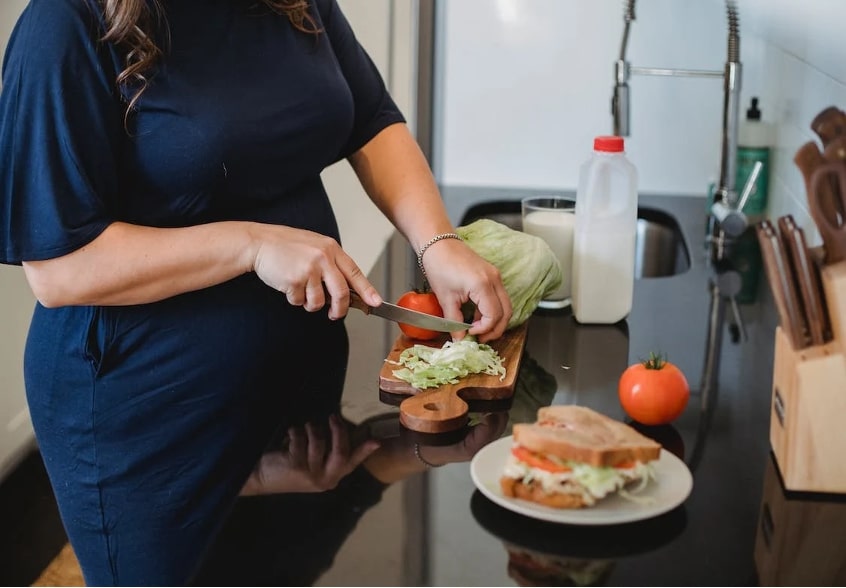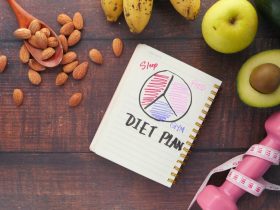When pregnant, you should pay close attention to your diet and take your health seriously. A nutritious diet is important for ensuring your baby is well-nourished from conception until birth.
As soon as you find out you’re pregnant, it’s normal to start analyzing your eating habits. But like many others, you might be tempted to consult your mother, the internet, or your past pregnancy practices for guidance. What you might not realize is that every pregnancy is unique. Depending on age or surroundings, the body may react differently to physical or hormonal changes. Nevertheless, making nutritional modifications during pregnancy is essential based on your specific requirements. It will be easier to manage your pregnancy symptoms and nourish your unborn child if you know what foods are healthy to eat during pregnancy.
Some women develop food aversions and decreased appetite during pregnancy. This is frequently linked to hormonal changes. Pregnancy-related appetite loss is a side effect of some medications, including anti-anxiety drugs. Speak with your doctor about potential reasons and treatment options if you’re experiencing any of these symptoms.
In this article, we’ll talk about the healthiest foods to eat when pregnant, so grab a notepad and get ready.
- Consume more vegetables
Vegetables should be a staple of your diet, regardless of whether you’re pregnant or not. However, the nutrients contained in vegetables are particularly important during pregnancy. The following are a couple of reasons why:
- They are rich in fiber and low in calories, fat, and cholesterol.
- They come packed with nutrients, including folate and many vitamins (it lessens the chance of spina bifida and neural tube problems during prenatal development).
Many people are under the misconception vegetables are bland and tasteless. But trust us—you’ll be surprised at the number of delicious vegetable recipes you can find. Moreover, you can get creative with them. You can put them into sandwiches, incorporate them into other foods, or mix them with smoothies.
Try to eat various veggies, whether raw, cooked, fresh, frozen, canned, or dried, as they will all contain different vitamins and minerals. Pick low-sodium options if they are canned. You don’t have to stick to a specific type of vegetable because they are all nutritious; nevertheless, raw green vegetables are frequently regarded as the healthiest.
- Don’t Forget Fruits!
Fruits not only taste good but also help you and your baby get the necessary nutrients while reducing sugar cravings. Fruits are a crucial component of your pregnancy diet, provided you don’t consume them in juice form all the time. It is important to remember that eating fruits requires vigilance. It will be beneficial to track how your body responds each time you consume fruit. For instance, you should reduce your intake if your blood sugar spikes or you detect an unusual increase in weight.
The following fruits are suitable for moderate consumption:
- Bananas
- Strawberries
- Orange
- Apple
- Mango
- Pears
- Avocados
- Pomegranates
- Grapes
- Dairy Products are Necessary
Dairy products are a wonderful source of calcium and protein, both of which support the growth of your baby’s bones. You won’t gain weight if consumed in moderation, but this shouldn’t be your main concern. Casein and whey are two types of high protein found in dairy products. Compared to most other dairy products, Greek yogurt, in particular, has higher calcium and is, therefore, particularly healthy.
Some versions also contain probiotic bacteria, which improve digestive function. Greek yogurt is excellent for savory recipes and is a breakfast staple. You might try using it as a dip or combine it with some chopped berries.
When purchasing dairy products, look for the term “pasteurized” on the label, especially on cheeses such as cotija. Your body is more vulnerable to illnesses during pregnancy, and pasteurization helps dairy products like cheese, yogurt, and milk destroy bacteria.
- Eggs Are Your Friends!
One of the healthiest things you can eat during pregnancy is those beautiful, nutritious eggs since they contain a tiny amount of almost every vitamin you need. One large egg contains nearly 80 calories, good protein, fat, and various vitamins and minerals. The essential vitamin choline, which is needed during pregnancy, is found in abundance in eggs. It is crucial for a baby’s brain growth and aids in preventing improper brain and spine development.
You’ve got plenty of options if you’re searching for something different than the typical scrambled egg. To serve as a snack, cover sliced hard-boiled eggs with everything bagel spice or stack a poached egg on top of a quinoa bowl or salad. Or combine eggs with vegetables and cheese and make a frittata.
- Add Dried Fruits to your Diet
Two qualities immediately come to mind when we talk about dried fruits—delicious and high in nutrients. Dried fruit is often high in fiber and various vitamins and minerals. Dried fruit offers the same nutrients as fresh fruit despite containing much fewer calories. Depending on the dried fruit you select, you can add more fiber, antioxidants, and various vitamins and minerals (including iron) to your diet.
For instance, walnuts provide one of the greatest sources of plant-based omega-3 fatty acids, while prunes are a tried-and-tested treatment for constipation. Dried fruits also contain a lot of iron but also a good number of antioxidants and fiber.
The Bottom Line
You must assess your nutrition for each pregnancy, regardless of whether you are an experienced parent or a first-time mom. Every aspect of your life is altered when you become pregnant, and every pregnancy is unique. You might need to refresh your knowledge of the foods that are healthy and those you should stay away from while pregnant.
It’s very normal to be inquisitive about what to eat when pregnant. Consider all the healthy food listed above, and if you have any food allergies, consult your doctor before creating a diet plan.







